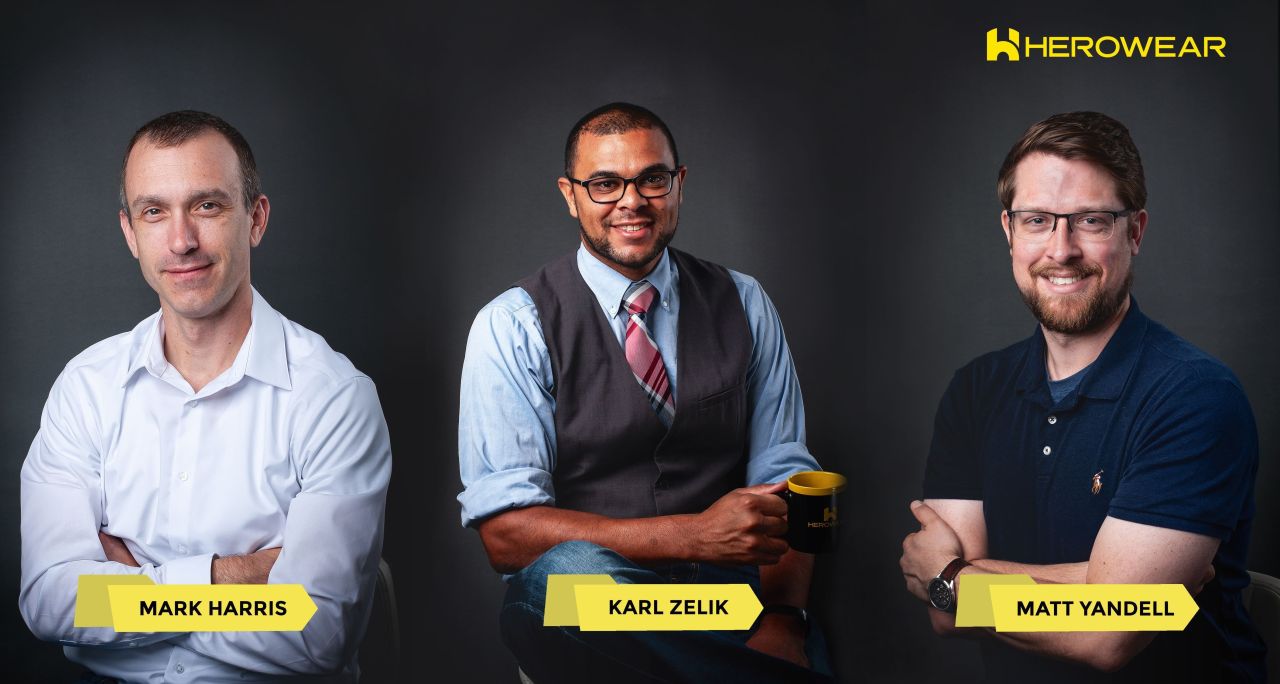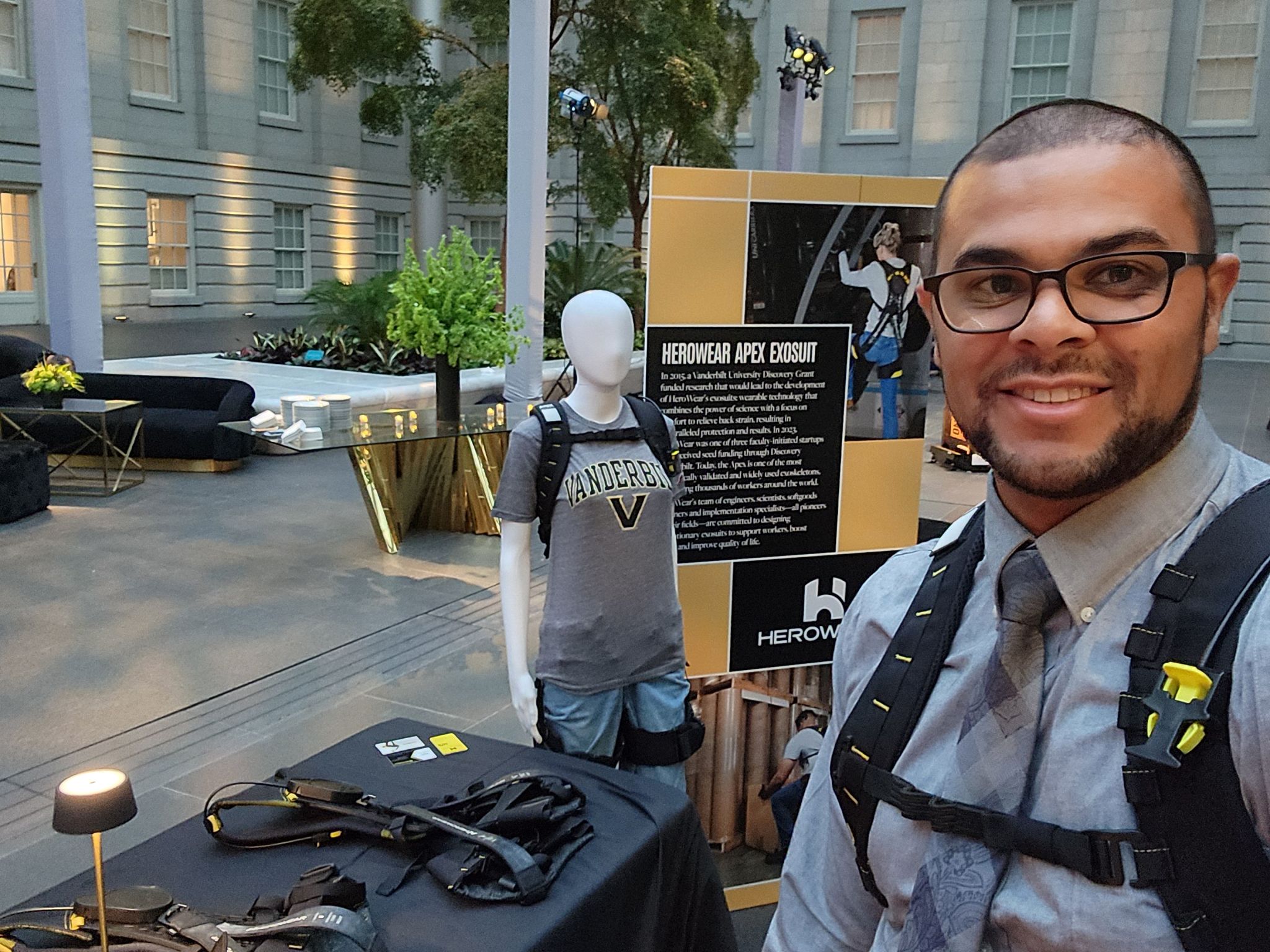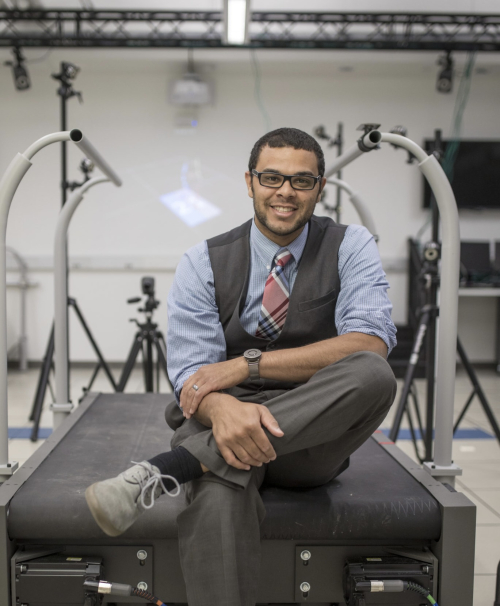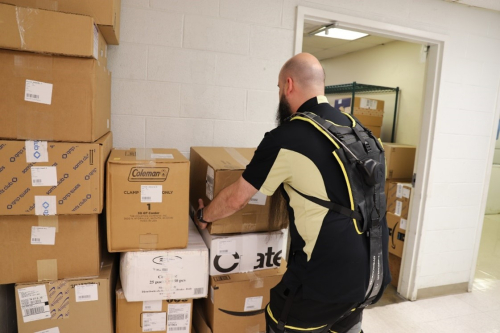Karl Zelik, Ph.D. is a biomechanical engineer specializing in wearable technology, prosthetics, and exoskeletons to assist people with disabilities, reduce injuries, and improve human performance. “I was always fascinated by testing the limits of the human body, initially as a kid through playing sports and getting injured a lot, and then later through the safer, academic route of biomechanical engineering,” states Zelik.
After completing his undergraduate degree from Washington University in St. Louis, Zelik worked briefly in the medical implant industry, where he discovered a passion for merging mechanical design with human movement. This inspired him to pursue a Ph.D. in Mechanical Engineering at the University of Michigan, focusing on biomechanics, prosthetics, and exoskeletons. In 2014, he joined the Vanderbilt University School of Engineering as a faculty member and helped found the Center for Rehabilitation Engineering and Assistive Technology (CREATE), which develops innovations to improve mobility, independence, and quality of life for people with disabilities.
ACADEMIC RESEARCH LEADS TO HEROWEAR
Zelik's personal struggles with back pain sparked his interest in applying biomechanical principles to create comfortable and practical exoskeletal solutions. His research team spent years developing early prototypes and pioneering the science of the assistive technology, now termed “back-assist exosuits.” Their initial work in this space focused on academic research and publications; however, strong interest from various industries revealed a critical need for practical solutions to workplace back injuries. Recognizing this demand, Zelik partnered with his entrepreneurial graduate student, Matthew Yandell, and serial entrepreneur and Vanderbilt alumnus, Mark Harris, to establish HeroWear. Together, their blend of technical expertise, entrepreneurial drive, and business experience positioned HeroWear to effectively bring their innovative back-assist technology to market.
The HeroWear team initially faced challenges in creating exosuits that were both effective and comfortable. To overcome this, Zelik shifted from focusing on technical requirements to a user-centric design process, which led to the Apex suit—a lightweight, soft exosuit that improves comfort while relieving 100 pounds of back strain during bending and lifting. At the Vanderbilt lab, the team validated that these soft elastic exosuits could reduce back strain and muscle fatigue by 15 to 40%, a breakthrough that allowed the team spun off HeroWear from Vanderbilt, enabling the translation of their scientific advancements and patented innovations into a scalable real-world product.
Zelik states, “We shifted our focus from purely academic research to a dual commitment of scientific rigor and practical, user-centered product development and commercialization.”

PATH TO COMMERCIALIZATION
Vanderbilt University and the Center for Technology Transfer and Commercialization (CTTC) have played a pivotal role in HeroWear's development. The team helped create a strong and innovative patent portfolio over the last decade, and connected Zelik with co-founder and CEO Mark Harris, both vital steps in launching HeroWear.
Zelik states, “Beyond intellectual property, CTTC provided invaluable early mentorship on entrepreneurship, guiding us through the complex process of spinning out a company from an academic research lab. This demonstrates how deeply integrated Vanderbilt and CTTC were in translating our laboratory research into a commercial product that is now positively impacting thousands of workers globally.”
GROWTH AND GLOBAL IMPACT
Since launching the Apex exosuit in 2020, HeroWear has been focused on helping to save the backs of hardworking men and women who bend and lift for a living, which addresses a major pain point in industry. HeroWear has roughly doubled its sales every year, with exosuits now deployed in over 30 countries. “Seeing the HeroWear Apex exosuit go from laboratory research at Vanderbilt to a product used by thousands of workers globally is immensely rewarding,” Zelik states.
HeroWear has strong evidence that its exosuits reduce workplace injuries, including first‑of‑its‑kind longitudinal data for the exoskeleton field. A 2024 industry study tracked 280,000 hours of exosuit use across multiple distribution centers, where historically over 10 back injuries would have been expected—yet none occurred. Users also reported 25% less discomfort and 20% less fatigue.
This growing evidence, including additional injury data from customers like Whole Foods and URM (Food Distribution) Stores, reinforces HeroWear's commitment to worker safety and well-being. Additionally, Zelik’s research at Vanderbilt led to the development of the SABER exosuit for soldiers, which informed innovations in the commercial Apex 2 model. These collaborations show how university research can directly benefit both civilian and military sectors.
LEGACY AND IMPACT
Looking ahead, HeroWear plans to continue its growth trajectory while delivering world-class products and services to an expanded client base. Bolstered by a recent Series A financing round, the company plans to increase inventory, drive innovation, and expand its team to support growing new and existing customer deployments. HeroWear’s top priorities remain maintaining an exceptional product and user experience as it serves small, medium, and enterprise organizations. The company is excited to continue leveraging and growing is considerable patent portfolio to support even more workers across diverse industries and job roles.
Zelik’s goal is for HeroWear to improve the safety and well-being of millions of hardworking individuals, allowing them to fulfill their critical responsibilities free from debilitating back pain and injuries, and enabling them to enjoy other aspects of their lives more fully. “We are not just selling a product; we are building a new category of wearable technology to improve societal health, and that is backed by rigorous science, always with the end-user's comfort and well-being at the forefront,” he states.
Zelik continues, “Bridging between academia and industry has been an enlightening and rewarding experience, and I am thrilled to see our academic research now having a tangible, positive impact on people's daily lives.”
Mark Harris, CEO and co-founder of HeroWear, states, "Our mission has always been to improve worker well-being, on and off the job, by reducing musculoskeletal injury risks and fatigue. Early on, we saw an opportunity to translate the cutting-edge biomechanics research at Vanderbilt into a practical solution that could transform lives and the workplace. For us, HeroWear represents a commitment to the dignity of hard work, ensuring that people don't have to sacrifice their bodies to earn a living."
Matthew Yandell, Chief Innovation Officer and co-founder of HeroWear, states, "From the very beginning, our drive was to create something that wasn't just technologically advanced, but genuinely user centric. The early journey was about relentless iteration, and balancing scientific rigor with real-world practicality. HeroWear, to me, is about empowering people by giving them the ability to perform their jobs safely and effectively, and ultimately, to have more energy and a better quality of life outside of work."

HeroWear’s success demonstrates the power of interdisciplinary collaboration and how academic research can lead to practical real-world solutions. Zelik envisions a future where exosuits are common in physically demanding jobs, and HeroWear is poised to make a significant impact, helping millions of workers perform their essential roles with less pain and greater satisfaction.
"My journey from academic professor into entrepreneurship with HeroWear was quite accidental. It stemmed partially from a personal motivation—my own back pain from parenting—which then serendipitously aligned with a massive unmet need in industry. This highlights that impactful innovations can often emerge from unexpected places, even from everyday personal experiences," Zelik states.


